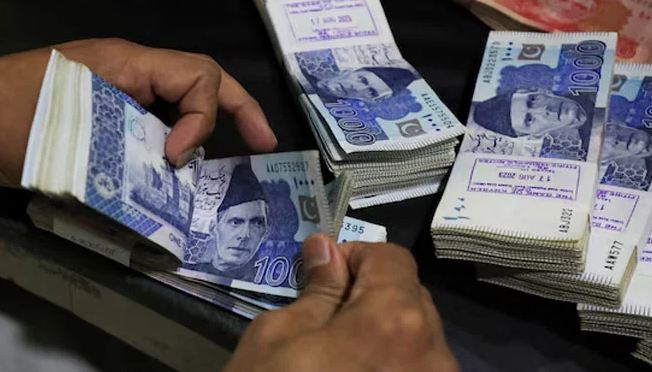ISLAMABAD: The federal government is set to unveil the much-awaited Rs18.5 trillion budget for fiscal year 2024-25 on Wednesday (today) as it aims to secure the new International Monetary Fund (IMF) bailout, according to a The News report.
Finance Minister Muhammad Aurangzeb will present the budget in the National Assembly and in this regard, the ministry has completed its preparations.
The budget comes a day after the government said economic growth of 2.4% expected in the current year would miss a target of 3.5%, although revenues were up 30% over last year, and the fiscal and current account deficits were under control.
The government is expected to set the Federal Board of Revenue’s (FBR) tax collection target at Rs12.97 trillion for the next fiscal year against the revised estimates of Rs9.252 trillion for the outgoing financial year.
The FBR had revised downwards the tax collection target of Rs9.2 trillion against the initial target of Rs9.415 trillion approved by the parliament on the eve of the last budget for 2023-24.
The tax collecting body wants to pursue fiscal consolidation by bringing down the overall fiscal deficit from over 7.6%, of the outgoing fiscal year, to 6.5% of GDP in the next budget through revenue efforts and curtailing unbridled expenditures.
The highest tax revenue mobilisation efforts will be made on Inland Revenue (IR) front including income tax and GST to fetch increased revenues of Rs1.7 trillion and Rs1.3 trillion, respectively, through nominal growth, effective enforcement and massive taxation measures.
Out of Rs12.97 trillion annual tax collection target for the next budget, the FBR envisages tax collection of Rs5.512 trillion through direct taxes, including Rs5.45 trillion in shape of income tax, sales tax of Rs4.919 trillion, federal excise duty of Rs 0.948 trillion and customs duty of Rs1.591 trillion.
On expanding the narrowed tax base, the Washington-based lender suggests access to detailed data on taxpayers, including their socio-economic characteristics and taxes they owe and pay.
Access to taxpayer level data from the revenue administration is critical for attaining the objective. Additional data that tax policy units (TPUs) may require include household budget surveys from national statistical agencies, business surveys from national statistical agencies and central banks, social security data, information on property from cadasters and other data depending on the type of analysis the unit undertakes.
Privacy and confidentiality concerns need to be taken into account in establishing data sharing arrangements between a TPU and government bodies that own the data.
The FBR will have to utilise technology to work with large data that needs to be exchanged, stored, managed and analysed. The government will also undertake a cut in expenditures on pension reforms front, subsidies and doling out the cost State Owned Enterprises.
With total outlay of over Rs18.5 trillion for the upcoming budget, the government will have to mobilise both tax and non tax revenues as well as expenditures side.

















